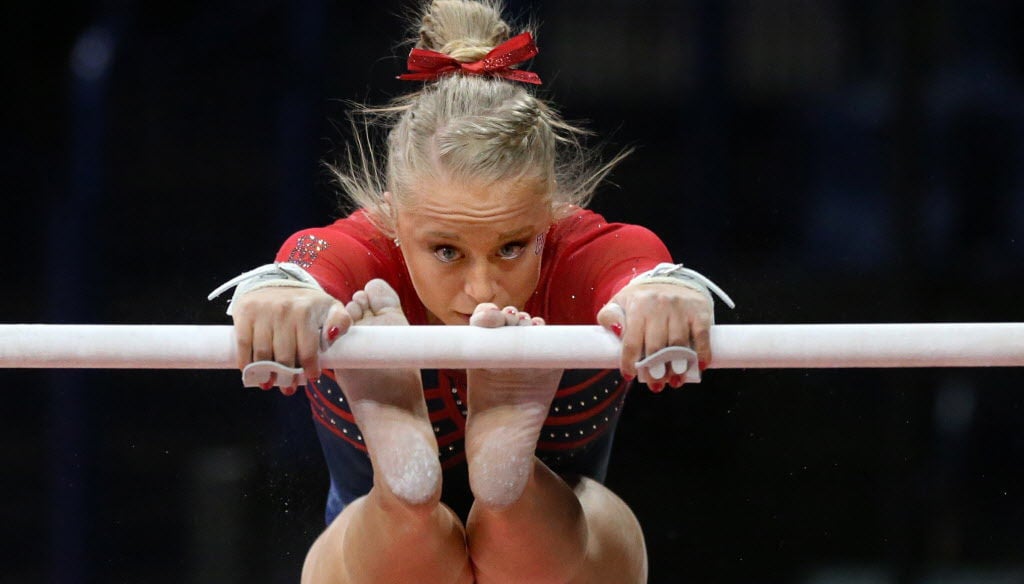Split-brain surgery.
The procedure, which separates the left and right hemisphere from each other, helps prevent multi-focal seizures.
Danielle Spencer’s personal connection with the surgery led her to major in biomedical engineering at the UA and apply for an internship with EpiFinder. Earlier this week, Spencer — a junior who will lead the UA gymnastics team into Friday’s meet against No. 10 Arkansas — received the news that she was accepted into the summer program.
EpiFinder works with better diagnostic techniques to better diagnose epilepsy, Spencer said.
“I always knew I wanted to do something to work with people like my brother, with any type of disability,” Spencer said.
Spencer’s twin brother, James, started having chronic seizures at 18 months old. Doctors diagnosed him with severe epilepsy, and said that he would suffer from tonic-clonic seizures and seizure clusters. The toddler had as many as 20 seizures per day.
The sheer number of attacks on James’ brain stunted his mental development.
“His epilepsy had gotten really bad to the point that it was really harmful,” Spencer said. “Well, it’s already harmful to begin with, but he had knocked all four front teeth out from a drop seizure. He was constantly being put under Valium to try to control them. There would be times when they would induce him into a coma to calm the seizures down.”
Most of the time, seizures are focal, meaning they go off in one part of the brain. Doctors discovered that James’ were multi-focal, originating in different parts of his brain.
Doctors implanted a Vagus nerve stimulator, which Spencer said is “like a pacemaker for your brain.” It worked: James’ number of seizures dropped to about five per day.
When James was a teenager, doctors said he would be a good candidate for a split-brain surgery. He has been seizure free since then.
“It’s absolutely incredible,” Spencer said. “And they say after 18 months, if the nerve endings haven’t reconnected, you should be good. And it’s been six, seven years, so he’s good.”
Spencer said she learned a lot growing up alongside a family member with special needs. James Spencer moved to a group home when he was 10. There, he receives 24-hour support. Danielle visits her twin over school break, and James visits Tucson occasionally. He’s been to a UA football game and a gymnastics meet.
Now in her third year in the biomedical engineering program, Spencer is stressed academically. But she reminds herself that it’s worth it and that she would be bored in any other career field.
“I love gymnastics, but you’re also here to get an education in something that you’re passionate about,” Spencer said. “And that is something I’m definitely passionate about and I know I would love a career in.”
And James will always be her twin brother, who will continue to inspire her. His positive outlook on life is something Spencer admires.
“He definitely grounds me and reminds me how lucky I am to have all these opportunities,” Spencer said. “If you meet any type of kid with a disability, they have it figured out more than most people who have everything. They are just the happiest people I have ever seen and it reminds me not to take it for granted.”





